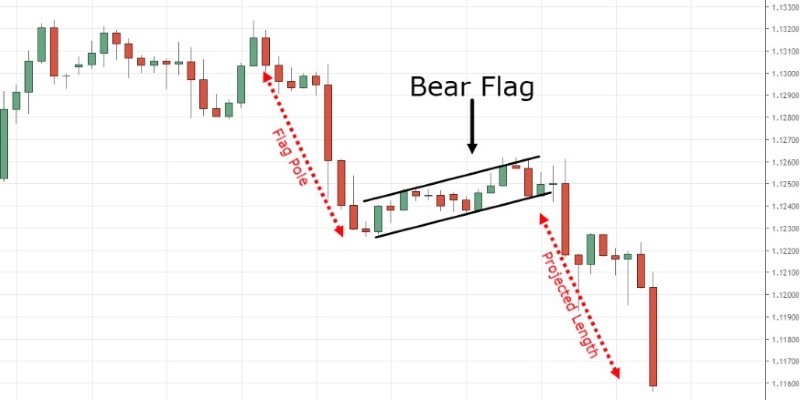Hiring a Business Tax Accountant: Key Considerations Guide
Jan 20, 2024 By Triston Martin
Running a successful business requires meticulous financial management, and one crucial aspect of that is handling taxes. Navigating the complex landscape of business taxation can be challenging, but with the right professional support, you can ensure compliance and optimize your financial strategies. Hiring a business tax accountant is a strategic move that can significantly impact your company's financial health. In this guide, we will explore the key considerations to keep in mind when selecting the right business tax accountant for your organization.
Qualifications and Credentials:
The first and foremost consideration in hiring a business tax accountant is their qualifications and credentials. Look for professionals who are certified public accountants (CPAs) or have relevant certifications, such as Chartered Professional Accountant (CPA) or Enrolled Agent (EA). These designations ensure that the accountant has undergone rigorous training and possesses the necessary expertise to handle complex tax matters.
Formal Education and Certification
This section can explore the importance of your potential accountant having a bachelor's degree, preferably a master's degree, in accounting or a related field. It can then emphasize the significance of certifications such as CPA (Certified Public Accountant) and EA (Enrolled Agents) to ensure their proficiency in meeting your business tax requirements.
Continuing Education and Specialization
Furthermore, it is crucial to emphasize the commitment of your potential accountant to continuous learning. Business tax laws undergo frequent updates, and it is imperative for your accountant to stay informed about these changes. Accountants who specialize in specific areas, such as small business taxes or international taxation, can provide significantly more valuable assistance compared to generalists, depending on your specific requirements.
Regulatory Compliance and Ethical Considerations
Finally, this section should emphasize the importance of your accountant adhering to regulatory standards and ethical guidelines established by professional accounting bodies. This guarantees the highest level of professional conduct when handling your business taxes, providing you with peace of mind and assurance that your accountant operates with integrity and transparency.
Industry Experience:

Business taxation varies across industries, and having an accountant with experience in your specific sector can be invaluable. An accountant who understands the intricacies of your industry will be better equipped to identify potential tax deductions, credits, and compliance issues that are unique to your business.
Industry-Specific Tax Laws and Regulations:
This section can delve into the intricate tax laws and regulations that pertain to various industries, necessitating a nuanced understanding for effective navigation. It highlights the importance of engaging an accountant well-versed in your industry's financial landscape, equipped to anticipate any potential tax implications arising from changes or advancements.
Experience with Similar Businesses:
When selecting a business tax accountant, experience plays a vital role. It is important to seek professionals who have worked with companies similar to yours in terms of size, structure, and industry. This hands-on experience provides them with a valuable edge in comprehending your business's specific financial requirements and developing effective tax strategies.
Track Record in Your Industry:
Another aspect to consider is the track record of the accountant in your industry. Look for testimonials or references from past clients in your industry to gauge their performance and success rate. A successful track record indicates that they have a thorough understanding of your industry and can provide valuable insights and guidance.
Knowledge of Industry-related Deductions and Credits:
A competent business tax accountant should have a thorough understanding of the deductions and credits specific to your industry. They can identify potential opportunities for tax savings and ensure that your business takes full advantage of all available benefits.
Familiarity with Regulatory Standards in Your Industry:
A proficient accountant is essential for your business, as they possess a deep understanding of the regulatory standards specific to your industry. Compliance is paramount, and having an accountant well-versed in the governing regulations can safeguard against potential legal issues and ensure seamless operations.
Track Record and References:
Reviewing the track record of a business tax accountant is essential. Look for professionals with a proven history of successful tax planning and compliance. Request references from past or current clients to gain insights into the accountant's reliability, responsiveness, and overall competence.
Verifying Past Successes:
This section emphasizes the significance of verifying a potential accountant's track record, including their ability to minimize tax liability for previous clients and identify overlooked deductions. By doing so, you can ensure that you are hiring an experienced professional who can deliver tangible results and add value to your business.
Requesting Client References:
It is crucial to reach out to past or current clients of the accountant and request references. This provides an opportunity to gain first-hand insights into their experiences, including the level of satisfaction with their services and any potential areas for improvement.
Analyzing Past Client Satisfaction:
Analyzing the satisfaction levels of past clients is essential. It provides you with an understanding of the accountant's ability to deliver on their promises and maintain a high level of client satisfaction. A track record of satisfied clients is a crucial factor in selecting the right business tax accountant for your company.
Checking Compliance History:
It is essential to check the accountant's compliance history with regulatory bodies. This ensures that they have a clean record and adhere to ethical standards and professional conduct guidelines established by accounting associations or governing bodies. It also provides assurance that your business taxes will be handled with integrity and in compliance with all applicable laws and regulations.
Assessing Responsiveness and Reliability:
Effective communication and timely responses are crucial when working with a business tax accountant. It is essential to assess the accountant's level of responsiveness and reliability through client references or other means. This ensures that you have a dependable partner who will prioritize your business's financial success and address any concerns promptly and efficiently.
Evaluating Problem-solving Skills:
The ability to identify and address complex tax issues is a valuable skill in a business tax accountant. This section can highlight the problem-solving skills of the potential accountant, including their approach to handling challenges and their track record in finding successful solutions for past clients.
Communication Skills:

Effective communication is key when working with a business tax accountant. Tax-related matters can be complex, and you need an accountant who can explain concepts in a clear and understandable manner. Choose a professional who can communicate effectively, keeping you informed about your business's financial situation and any tax-related developments.
Conclusion:
Hiring a business tax accountant is a strategic investment in the financial health of your company. By carefully considering the qualifications, industry experience, track record, communication skills, technology proficiency, fee structure, and accessibility of potential candidates, you can make an informed decision that aligns with your business goals. With the right tax professional by your side, you can navigate the complexities of business taxation with confidence and focus on driving your business forward.

Doji Candlesticks: Unlocking Market Insights Through Indecision

Back Tax Relief: How To Get Rid Of Them

Methods to Efficiently Cash Out Your Life Insurance Policy

The Gamma Squeeze: What Is It?

ETF vs. Index Fund: An Overview

Bear Flag Pattern: A Step-by-Step Guide for Navigating Bearish Markets

What Does It Mean To Be Dependent? Everything You Have To Know

Best Vision Insurance Companies Of 2022

How To Get Started Investing With Little Money

